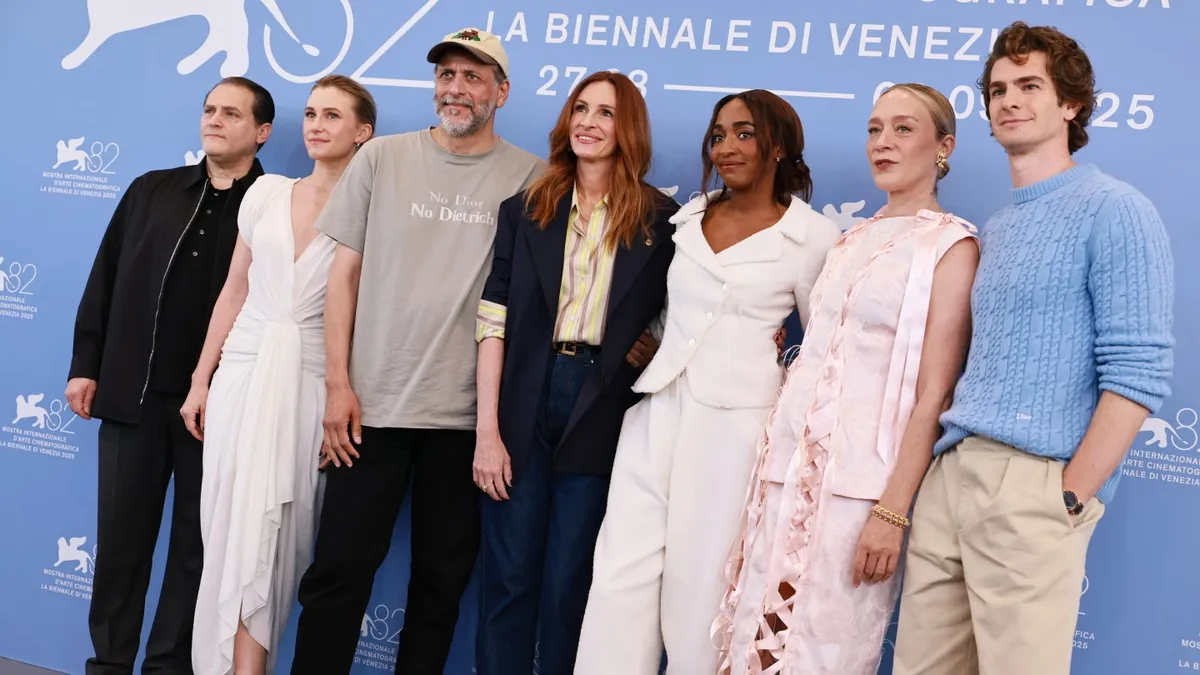
Luca Guadagnino’s latest film, After the Hunt, starring renowned actors Julia Roberts, Ayo Edebiri, and Andrew Garfield, delves into complex themes and character conflicts that resonate deeply with the ongoing MeToo movement. This psychological drama raises important questions about power dynamics, personal truths, and the impact of past actions, making it a significant addition to contemporary cinema. The film had its official press conference at the Venice Film Festival, where Guadagnino shared insights about the film’s artistic choices, including the use of opening credits reminiscent of Woody Allen's work.
During the press conference, Guadagnino was asked about his decision to draw inspiration from Allen's films for the opening credits. His initial response was candid: “The crass answer would be, why not?” However, he elaborated on this choice, explaining that his creative team—comprising Malik Hassan Sayeed (director of photography), Stefano Baisi (production design), and Giulia Piersanti (costume design)—found themselves frequently referencing Allen’s works such as Crimes and Misdemeanors, Another Woman, and Hannah and Her Sisters.
Guadagnino expressed that there was a structural connection between Allen's films from the late '80s and early '90s and the narrative framework of After the Hunt. He acknowledged his previous experiments with credit styles in earlier films but emphasized that the themes of assault and misconduct in his current film made this specific homage particularly poignant. He stated, “I felt it was also sort of an interesting nod to thinking of an artist who has been, in a way, facing some sort of problems about his being.” This comment reflects Guadagnino’s awareness of the complex relationship between an artist's work and their personal controversies.
After the Hunt is centered around college professor Alma Imhoff, portrayed by Roberts, who grapples with both personal and professional dilemmas when her star student, Maggie (Edebiri), accuses her colleague, Hank (Garfield), of assault. The film depicts the unfolding of events that lead to the revelation of a dark secret from Alma’s past. Guadagnino directed the film from a script penned by Nora Garrett, and he was notably impressed by Garrett’s work, which arrived at a time when he was contemplating similar themes of power.
Guadagnino reflected on the motivations behind seeking power, pondering questions such as, “What do we want when we are looking for power? Why do we want power? Why do we fight over getting power in our hands and taking it off other people’s hands?” This exploration of power and its implications is a central theme in After the Hunt, underscoring the various shades of truth that characters experience throughout the narrative.
Furthermore, Guadagnino emphasized the film's focus on the concept of truth, stating, “Everyone has their own truths. It’s not that one truth is more important than the other. It’s how we see the clash of truths and what is the boundary of these truths together.” This dialogue about the multiplicity of truths enhances the film's relevance in today’s discourse surrounding personal narratives and accountability.
The eagerly anticipated After the Hunt premiered on Friday evening in the prestigious Sala Grande at the Venice Film Festival, which runs from August 27 to September 6. The film is set to be released by Amazon MGM Studios on October 17, promising to engage audiences in a thought-provoking exploration of contemporary issues intertwined with personal and societal conflicts.